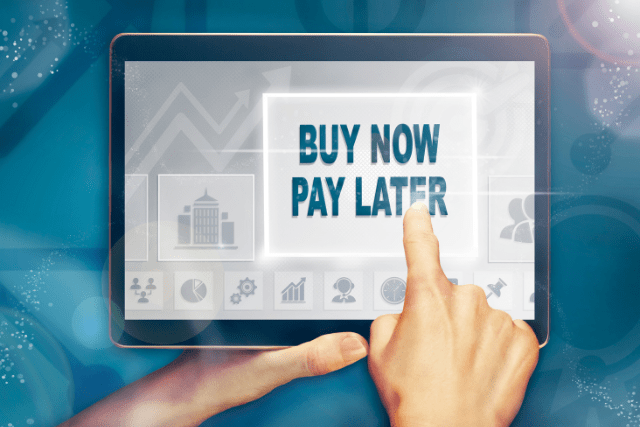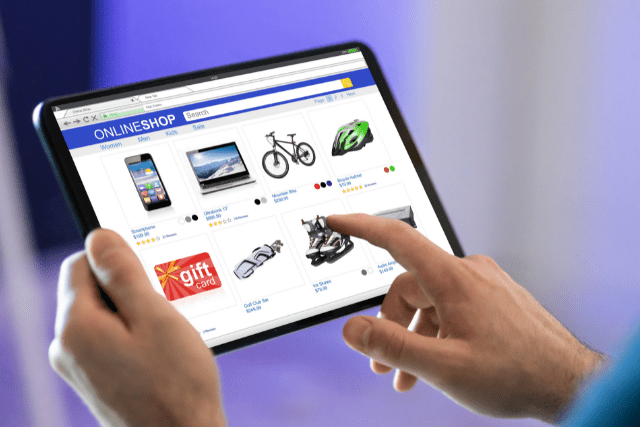Personalization has become a game-changer in online retail, revolutionizing how businesses interact with customers. Tailoring experiences to individual preferences, businesses can create a shopping journey that feels uniquely curated for each customer.
But what exactly is the power of personalization, and how does it impact the success of online retailers?
Today, we will explore the strategies behind effective personalization in ecommerce, examine real-life case studies of its implementation, and discuss the challenges and considerations businesses must navigate to harness the full potential of personalization.
Key Takeaways
- Personalization in ecommerce drives customer satisfaction, loyalty, and positive brand recommendations.
- Implementing ecommerce personalization can lead to higher conversion rates and increased customer retention.
- Utilizing customer data and insights is crucial in creating personalized experiences and offers.
- Tools and technologies such as mobile apps, predictive analytics, and marketing automation platforms are essential for effective ecommerce personalization.
Table of Contents
What is E-commerce Personalization?
E-commerce personalization refers to tailoring the online shopping experience to individual customers based on their preferences, behaviours, and past interactions. This can range from personalized product recommendations to customized email campaigns. The goal is to create a unique experience that resonates with each customer, making them feel valued and understood.
Ecommerce personalization is a powerful tool that allows businesses to create customized online retail experiences for their customers.
Businesses can tailor product recommendations, messaging, and content by leveraging customer data and analytics to meet individual preferences and characteristics.
This level of personalization enhances the shopping experience and leads to increased customer satisfaction, higher conversion rates, enhanced customer loyalty, and improved customer retention.
Benefits of Ecommerce Personalization
By leveraging customer data and employing targeted strategies, ecommerce personalization offers a range of benefits that significantly enhance the online shopping experience.
Here are three key benefits of ecommerce personalization:
- Personalized experiences: By curating product recommendations and tailored messaging based on individual preferences and behaviour, ecommerce personalization creates a more personalized and relevant shopping experience. This helps customers find what they’re looking for quickly and reduces friction in the buying process.
- Reduce customer acquisition costs: By providing personalized offers and recommendations to customers with purchase intent, ecommerce personalization increases the likelihood of conversion and reduces the need for costly customer acquisition campaigns. This leads to improved ROI and cost savings for businesses.
- Increase customer loyalty: Personalization fosters a sense of loyalty and connection with customers. Ecommerce businesses can build strong customer relationships by offering personalised rewards and incentives, increasing customer retention and repeat purchases.

Strategies for Ecommerce Personalization
Here are the top effective strategies for implementing ecommerce personalization, enabling businesses to deliver a more personalized and enjoyable shopping experience for their customers.
Utilizing customer data and insights
One of the key elements of successful ecommerce personalization is leveraging customer data and insights. Businesses can gain valuable insights into customers’ preferences and shopping patterns by analysing purchase history, browsing behaviour, and demographic information.
This data can then be used to provide personalized recommendations, product suggestions, and targeted marketing campaigns.
Implementing personalized product recommendations
Product recommendations are a powerful tool for ecommerce personalization. Businesses can offer customers personalized recommendations based on browsing and purchase history using machine learning algorithms and collaborative filtering techniques.
These recommendations can be displayed on the homepage, product pages, or through email marketing campaigns to help customers discover new products they are more likely to be interested in.
Creating personalized email marketing campaigns
Email marketing remains one of the most effective channels for engaging with customers. Businesses can deliver relevant and targeted content directly to their customers’ inboxes by personalising email campaigns based on customer preferences and behaviour.
This could include personalized product recommendations, exclusive discounts, or reminders about abandoned shopping carts, ultimately driving higher engagement and conversion rates.
Offering personalized discounts and promotions
Personalized discounts and promotions are a great way to incentivize customers to purchase. Businesses can create exclusivity and relevance by tailoring discounts based on customer preferences, purchase history, or browsing behaviour.
For example, offering a discount on a customer’s favourite brand or sending a personalized birthday discount can significantly enhance the customer experience and increase the likelihood of conversion.
Customizing the online shopping experience
Businesses should focus on customizing the overall online shopping experience. This can include personalizing the website’s layout, content, and navigation based on customer preferences.
Implementing personalized product search, saved preferences, or wishlist functionality can provide customers with a more intuitive and convenient shopping experience, ultimately increasing customer satisfaction and loyalty.

Successful examples of ecommerce personalization
Successful case studies demonstrate the significant impact of personalized experiences on sales and customer engagement in e-commerce.
Here are three examples that highlight the power of personalization in online retail:
- Sephora: Through their mobile app, Sephora provides tailored messages and exclusive perks based on loyalty tiers. This personalized approach resulted in increased customer engagement and sales.
- Amazon: By leveraging customer data and browsing history, Amazon offers personalized recommendations. This strategy has resulted in improved customer loyalty and increased social media engagement.
- Spotify: Using a hyper-targeting approach, Spotify creates Discover Weekly playlists tailored to individual tastes and preferences. This personalization has led to enhanced customer satisfaction and increased social media engagement.
These case studies highlight how personalization in online retail can directly impact sales and customer engagement. By delivering tailored experiences, businesses can create a more enjoyable and relevant shopping journey for their customers.
Tools and Technologies for Ecommerce Personalization
Tools and technologies for ecommerce personalization enable businesses to create tailored shopping experiences based on individual preferences and characteristics.
Marketing automation platforms play a crucial role in automating these personalization efforts and ensuring that the right messages are delivered to customers at the right time.
| Tools and Technologies | Description |
|---|---|
| Mobile apps | Enable personalized experiences on mobile devices, allowing for location-based offers, push notifications, and personalized recommendations. |
| Predictive analytics | Utilize historical and real-time data to forecast customer behaviour and preferences, enabling businesses to make data-driven decisions for personalization strategies. |
| Customer data | Collect and analyze customer data to gain insights into individual preferences, purchase history, and browsing behaviour, enabling businesses to deliver personalized experiences. |
| Loyalty program tier-based messaging. | Segment customers based on their loyalty program tier and deliver customized messaging and offers to each segment, incentivizing higher levels of engagement and loyalty. |
These tools and technologies empower businesses to create a personalized shopping experience, improving customer satisfaction and driving sales.

Challenges and Considerations
As personalization becomes more prevalent in online retail, businesses must navigate the challenges and considerations that come with it. You need to consider the following:
Compliance With Regulations
Navigating the complex landscape of compliance with regulations is a crucial challenge for businesses seeking to balance privacy concerns with effective personalization efforts in online retail.
Ensuring data security and compliance with regulations such as GDPR and CCPA is paramount in maintaining customer trust. To paint a clearer picture, let’s take a look at some of the challenges and considerations businesses face in complying with regulations for personalized customer experiences:
| Challenges | Considerations |
|---|---|
| Technical limitations and integration challenges | Implement robust data protection measures and encryption protocols to secure customer data |
| Managing customer expectations | Communicate how customer data is used for personalization purposes and obtain explicit consent. |
| Adhering to regulations and privacy standards | Regularly audit data privacy practices and update policies to comply with evolving regulations. |
| Data retention and deletion | Establish clear policies and procedures for data retention and deletion to ensure compliance. |
| Cross-border data transfers | Monitor and comply with international data transfer regulations, such as Privacy Shield or Standard Contractual Clauses. |
Measuring ROI
Getting accurate ROI measurement is nuanced because personalization typically happens behind the scenes, and its impact can be diffused across the customer journey. Specific issues include:
- Isolating the sales/engagement lift generated specifically from personalization features requires using control groups – one exposed to personalization, one not – to reveal the experience’s incremental impact.
- Long-term brand loyalty results are harder to attribute directly to personalization, even though that is part of the goal. Disentangling short vs. longer-term ROI differences matters.
- Soft metrics like customer satisfaction increases or perception shifts driven by personalization have tangible downstream business impacts that need connecting to an ROI model.
- Sophisticated analytics tools can now map detailed customer journeys to quantify where and how personalization creates value at scale. However, legacy analytics implementations may lack this functionality.
Delivering Real-Time Experiences
Providing continuously updated, dynamic, personalized experiences hinges on the following:
- Low latency data streams into analytics systems so algorithms output guidance based on the latest customer behaviour to activate personalized experiences. Laggy or batch-processed data prevents true real-time personalization.
- Flexible content management that can adjust page layouts, promotions, and product displays on the fly guided by analytics engine optimization. Slower content systems struggle with the speed needed.
- Predictive analytics prescribes actions based on probable customer responses vs. just past behaviours. This powers instant recommendation refinement for faster optimization.
Omnichannel Coordination
Delivering consistent personalization requires:
- Centralized customer data foundation where insights gathered online, in-store, via call centre, etc., come together in one analytical engine to derivate holistic customer views for cross-channel engagement guidance.
- Orchestrating analytical insights activation across departments and functions from digital teams to store associates to contact centre reps so actions align to customer needs regardless of channel.
Frequently Asked Questions
What is personalization in eCommerce and retail?
Personalization in eCommerce involves using data and technology to create customized and relevant shopping experiences for each customer across touchpoints. Retail personalization tailors content, offers, and recommendations to match customer interests and behaviour.
Why is Ecommerce Personalization Important for Online Retailers?
Ecommerce personalization is important for online retailers as it can significantly improve the overall shopping experience for customers, leading to increased satisfaction, higher engagement, and improved conversion rates.
How does personalization improve customer experience?
Personalization allows online stores to provide the individualized service shoppers want. Customers are 40% more likely to purchase when brands offer personalized experiences catered to their needs and preferences. It drives higher satisfaction and engagement.
What Strategies Can Retailers Implement for Ecommerce Personalization?
Retailers can implement various personalization strategies, such as using customer data to provide personalized recommendations, employing a personalization platform, and utilizing dynamic personalization to enhance the ecommerce experience for their customers.
What are Some Examples of Ecommerce Personalization?
Some personalization examples include creating personalized email campaigns, offering tailored product recommendations based on customers’ browsing history, and customizing the shopping cart to display relevant items.
What are some eCommerce personalization examples?
Common personalization tactics include customized homepages, product recommendations, tailored email campaigns, individualized discounts or incentives, personalized search results prioritizing items a shopper would like, and one-to-one messages on-site.
How can I implement personalization on my eCommerce site?
Retailers can implement personalization using specialized platforms that collect customer data and translate it into customized shopping experiences through analytics and segmentation tools. Investing in a robust personalization solution should be part of any eCommerce brand’s digital strategy.
Conclusion
The power of personalization in online retail cannot be overstated. Businesses can provide highly relevant and tailored customer experiences by using customer data and implementing targeted strategies. This level of personalization enhances the shopping experience, drives sales, and increases customer satisfaction.
However, businesses must balance personalization with privacy and comply with data privacy regulations to maintain trust. Staying updated on technological advancements will also help businesses adapt to future shifts in personalization strategies.







